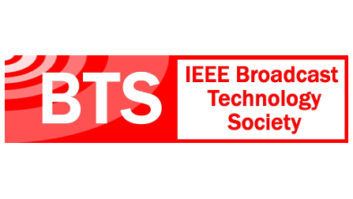Reprinted from Broadcasting & Cable.
Continuing a “Groundhog Day”-like cycle of FCC media ownership decisions and trips to court, the Prometheus Radio Project, which has been battling media deregulation for a decade and a half, has filed suit against the FCC’s recent decision to eliminate the newspaper-broadcast cross ownership and loosen other broadcast regulations, saying the FCC “ignores evidence in the record, misinterprets evidence, and fails to consider important aspects of the record.”
The rule challenge was filed in the Third Circuit, which has been dealing with the issue for almost as long.
Joined by the Media Mobilizing Project, Prometheus wants the court to reverse the decision and require the FCC to “fully comply” with the court’s direction in remanding a previous quadrennial decision after Prometheus challenged it.
On Nov. 17, as part of the Congressionally mandated quadrennial media ownership regulation review, a Republican FCC majority, assailed by FCC Democrats who strongly dissented, eliminated some decades-old broadcast regulations and tweaked others in what broadcasters have argued is necessary to allow them to remain relevant in a sea of less-regulated competitors.
The order eliminated the newspaper-broadcast and the radio/TV cross-ownership rules; allowed dual station ownership in markets with fewer than eight independent voices after the duopoly, creating an opportunity for ownership of two of the top four stations in a market on a case-by-case basis (the FCC is not calling it a waiver); eliminates attribution of joint sales agreements as ownership; and creates an incubator program.
In doing so, the FCC under current chairman Ajit Pai, reversed a decision by the previous FCC Democratic majority to leave most of the rules in place. Prometheus had challenged that decision, too, not because it had left most of the rules in place, but because Prometheus said it, again, did not sufficiently take diversity into account, which would have led to imposing more regulations, not simply leaving most in place. That earlier challenge has yet to be resolve and Prometheus also asked the court this week to consolidate this challenge with that one.
Prometheus argues that the Pai FCC also failed to respond to the Third Circuit’s direction, in remanding a previous attempt to deregulate, that it get better data on ownership diversity before deregulating.
The recent FCC decision under Pai did also initiate a rulemaking on creating a diversity incubator program and to consider the definition of eligible entity, but that did not cut it with Prometheus.
“The commission’s Reconsideration Order once again fails to satisfy this court’s remands in either Prometheus II or III,” it said in seeking the court review. “As was the case in the Second Report and Order, and despite this court’s instruction in Prometheus III to gather and analyze more ownership data if necessary, the commission did not collect such data or conduct the studies necessary to make a reasoned decision with respect to the impact of rule changes on ownership diversity and retained the revenue-based definition of ‘eligible entity’ previously found arbitrary and capricious by this court.”











